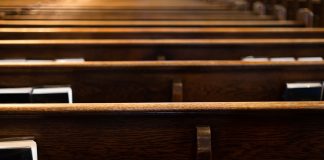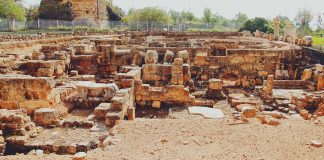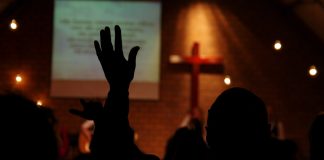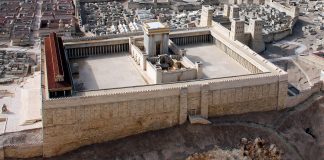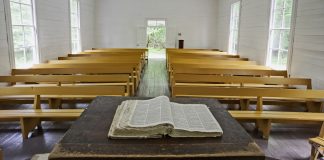Summa Theologica | Theology’s sway with logic
Classmates nicknamed him “the dumb ox” because of his massive physique and quiet nature. But his brilliant mind and passion for study impressed the famous professor Albert the Great, who defended him: “When this Ox roars, the whole world will hear it.” He was talking about Thomas Aquinas.
The awakening America needed
In the early decades of the 18th century, America was in the throes of an identity crisis. The new American lifestyle had earned New England the nickname of “the new English Sodom.”
Stones speak to those willing to listen
On May 23, 2012, the Israel Antiquities Authority announced the discovery of a 1.5 cm piece of clay, which represents the oldest extra-biblical attestation of the town of Bethlehem. Eli Shukron, the coordinator of the excavation work, believes that we are dealing with a bulla from the 7th-8th centuries B.C., probably used for sealing a document or object.
William Wilberforce | The “Nightingale” who devoured the Hydra
A deeply religious English politician and tireless social reformer, William Wilberforce, nicknamed the “Nightingale of the House of Commons” for his distinct and melodious speaking, made history with his contribution to the complete abolition of slavery in the British Empire.
The rush for speaking in tongues
“The newest religious sect has started in Los Angeles. Meetings are held in a tumble-down shack on Azusa Street...and the devotees of the weird doctrine... work themselves into a state of mad excitement...They claim to have the ‘gift of tongues’ and to be able to understand the babel”.
The mystery of the incarnation
The birth of Jesus Christ is one of the most significant events in human history. Celebrated at Christmas, by some with emotion, by others with indifference, most of the time the holiday loses sight of the main Character. Religious meanings remain in the shadows, while commercial dimensions are pursued at all costs.
The nativity of Jesus, “the most beautiful story in the world”
The nativity of Jesus gives meaning and hope to all the stories about us and the world in which we live. In the bundle of narratives that have ever been imagined and told, it remains "the most beautiful story in the world."
Born in Bethlehem, adopted by Hollywood
Born of a virgin, brought up in humble conditions with phenomenal dignity, poor all throughout his life but desired as king by thousands, famous for healing the sick and raising the dead, the target of conspiracies of the highest officials, killed by crucifixion and resurrected after three days—Jesus Christ is at the centre of the most fabulous script ever to fall into the...
The first Christmas gift-giver
In writing this article, I asked a handful of people what the worst thing they had ever received for Christmas was. The answers I received were interesting, to say the least.
Behind the scenes of acts of kindness done at Christmas
The holidays are a time of generosity, when those forgotten by the world meet those who want to forget that sadness exists and, out of the coexistence of the two needs, something good is born.
From Jerusalem to Rome
“Jerusalem crucified the Lord, Rome beheaded and crucified his chief apostles and plunged the whole Roman church into a baptism of blood. Rome became, for good and for evil, the Jerusalem of Christendom, and the Vatican hill the Golgotha of the West. The cross was substituted for the sword as the symbol of conquest and power” [1].
Christ’s soldiers on the world’s front lines
“Prayer at the centre of our mission and mission at the centre of our prayer.”– Salvation Army catch-phrase
Athanasius | The defender of the New Testament
The New Testament would have looked quite different[1] without the influence of Athanasius the Great, bishop of Alexandria and church father of the Christian Church in the 4th century.
When the face of the world changes | The epistemological significance of the Protestant Reformation
After Jesus was born—that is, in the era we call Anno Domini (AD)—the history of mankind was different from that of Christianity. As it is known, the latter was not the history of a triumphant march of Christianity towards its universalization and the unification of the human race. On the contrary, this history can rather be characterised as a manifestation of “the great...
An unusual preacher
Mass evangelism “campaigns” have become a common phenomenon in contemporary religious culture. However, few people ask how it all started and what are its long-term effects.













